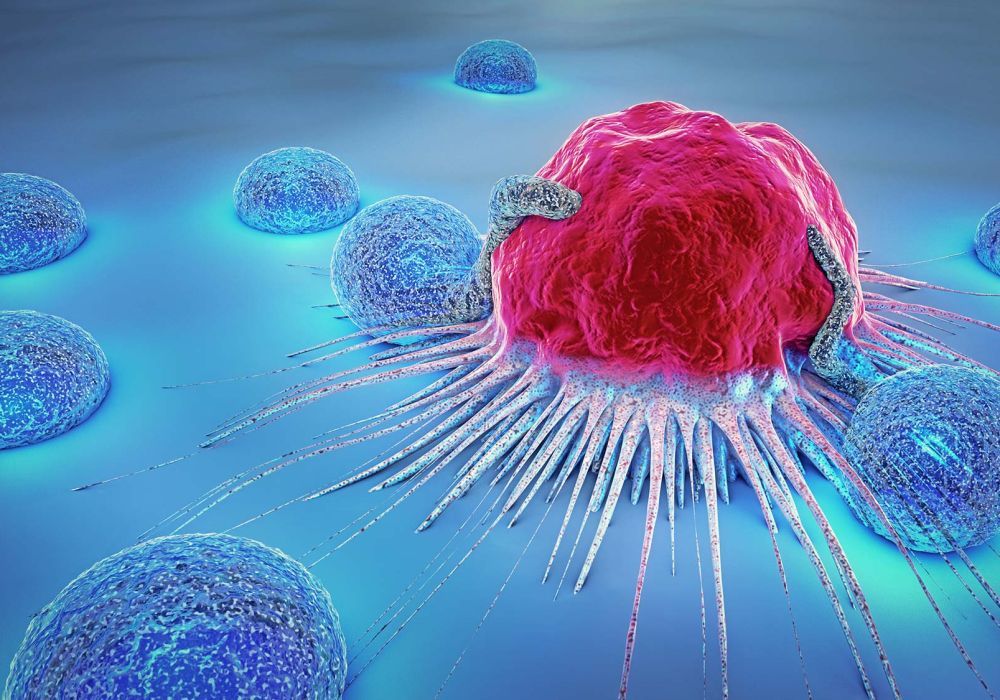Living Medicine for Cancer and Multiple Sclerosis with CAR-T Therapy - How does the treatment work?
Posted 1 month ago
CAR-T therapy represents a remarkable leap forward in treating cancer and, potentially, other diseases like multiple sclerosis.
Introduction: In the realm of medical advancements, revolutionary treatments are emerging to combat challenging diseases like cancer and multiple sclerosis. One such groundbreaking approach is Chimeric Antigen Receptor (CAR) T-cell Therapy, commonly known as CAR-T therapy. This living medicine harnesses the body's immune system to target and eliminate cancer cells and has recently shown promise in treating multiple sclerosis. This article explores the innovative world of CAR-T therapy, shedding light on its mechanism and potential applications.
Understanding CAR-T Therapy: CAR-T therapy involves the manipulation of T cells, a type of white blood cell, to create a robust immune response against cancer cells or those contributing to multiple sclerosis. "CAR" stands for Chimeric Antigen Receptor, a synthetic receptor engineered into the T cells to enhance their ability to recognize and destroy specific cells.
The CAR-T Treatment Process: Cell Isolation: The process begins with blood extraction from the patient. Within this blood, T cells are isolated to serve as the foundation for personalized treatment. Leukapheresis: T cells are separated from the patient's blood through leukapheresis, isolating a substantial quantity of T cells. Genetic Modification: Isolated T cells are sent to a laboratory for genetic modification. The specific chimeric antigen receptor (CAR) gene is introduced, transforming the T cells into CAR-T cells. This modification empowers the cells to target cancer cells or cells contributing to multiple sclerosis.
Cultivation and Multiplication: The modified CAR-T cells are cultivated and multiplied in the laboratory over several weeks. This step is crucial to generating a sufficient quantity of the modified cells for an effective therapy.
Infusion: The final step involves infusing the cultivated and modified CAR-T cells into the patient. These engineered cells then act as a living medicine, targeting and eliminating cancer cells or cells associated with multiple sclerosis.
CAR-T Therapy for Multiple Sclerosis While initially developed for cancer treatment, CAR-T therapy has shown promise in addressing other conditions, including multiple sclerosis. The therapy's adaptability demonstrates its potential to revolutionize how we approach various diseases, expanding its scope beyond oncology.
Watching CAR-T Cells in Action For a visual representation of the efficacy of CAR-T therapy, consider watching demonstrations in the video showcasing how these living medicines target and destroy cancer cells. The CAR on the T cells recognizes specific antigens on the surface of cancer cells, leading to their targeted removal. This powerful and precise mechanism highlights the potential of CAR-T therapy as a game-changer in medicine.
Conclusion CAR-T therapy represents a remarkable leap forward in treating cancer and, potentially, other diseases like multiple sclerosis. The ability to harness the body's immune system to fight against these conditions is a testament to the strides made in personalized medicine. As research and clinical trials continue, the future holds exciting possibilities for CAR-T therapy, offering hope for patients facing complex and challenging medical conditions.
#cancer #cancerresearch #cancertreatment #multiplesclerosis #CARTtherapy #LivingMedicine #CancerTreatment #MSResearch #Immunotherapy #MedicalInnovation #TCellTherapy #PrecisionMedicine #CARcells #MultipleSclerosis #InnovativeTherapies #MedicalBreakthrough #Immunology #HealthTech #CARonTCells #RevolutionizingTreatment #ScienceInHealthcare #PersonalizedMedicine #FutureOfMedicine #MedicalAdvancements

Add a comment